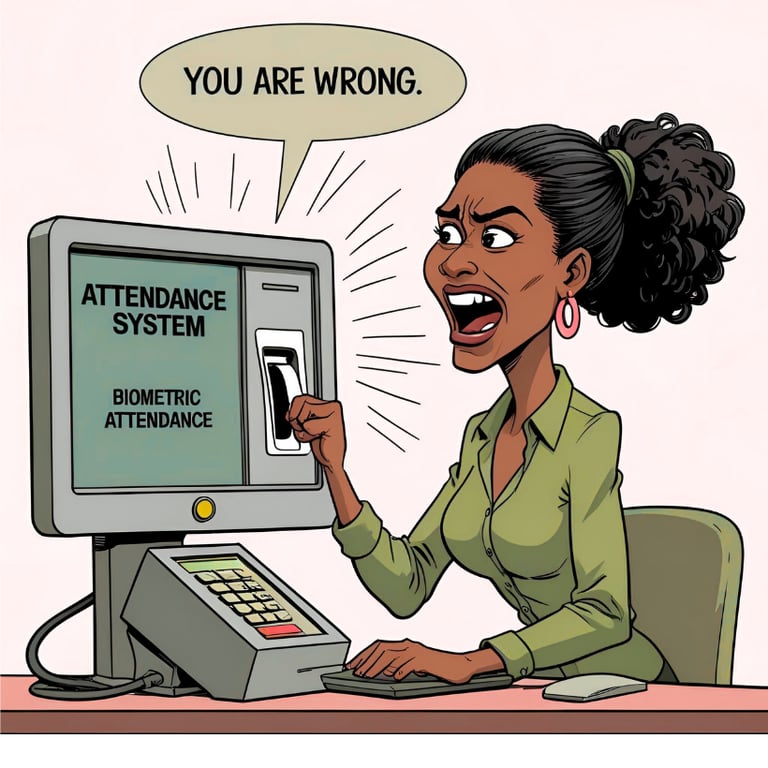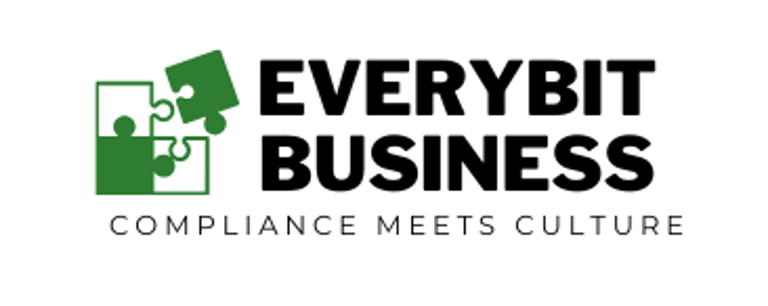The Day an Employee Argued with the Biometric System
DEAR HR DIARY


Today was one of those classic HR marathon days — a full schedule of disciplinary hearings at a client’s office, all focused on a surprisingly common issue: lateness.
Now, lateness in the Kenyan workplace isn't new. But when it becomes the norm rather than the exception, employers start to feel the pinch — and rightfully so. In this case, employees were expected to report at 8:00 a.m. Instead, many were arriving at 8:15, 8:30... even 9:00 a.m.. Coffee in hand. Smiling. No rush. At the employer’s office!
Back in my day (yes, I said it), this would never fly. You’d be turned away at the gate and lose your day’s pay. But we now operate in a world where HR must balance accountability with mental health, workplace empathy, and the ever-dreaded "Gen Z lens".
🎯 The Day of the Hearings
I had prepared a structured process for the day. Each employee was scheduled to meet with their supervisor and myself, as the external HR rep, to go through the disciplinary procedure:
Review biometric attendance data
Discuss their show cause response
Give them a fair chance to be heard
Offer guidance for improvement
One by one, staff came in, explained their situations (from traffic to “I woke up late”), and — importantly — took ownership and accountability. Most left with a clear action plan and the will to improve.
Then… entered Violet.
🚨 Violet vs. The Biometric
Violet was a relatively new employee — in fact, she’d started off as one of the most punctual team members. She was so early in her first few weeks - The kind that used to rival the watchman to open the gate. But today? She walked in looking visibly agitated. Tense. Defensive. Understandable — Accountability is uncomfortable, and the formality of hearings can make anyone sweat.
We began just like the others:
Reviewed her attendance
Revisited the show cause letter (which she had already responded to)
Gave her a full chance to speak, uninterrupted
Then came her response, and I quote:
“How can you discipline me for being just 5 to 45 minutes late when others come much later? That machine must be wrong.”
When shown the biometric logs again, she added:
“I live very far. I’ll probably keep being late. You HR people should know how to handle this better. I wasn’t given a fair chance!”
Mind you, this was her second opportunity to explain herself — the first being the written show cause, and now this face-to-face hearing. And yet, Violet firmly refused to acknowledge any wrongdoing. No commitment to adjust. No acceptance of lateness. Just a firm statement that she’d appeal to the CEO.
🧠 HR Reality Check
Not every hearing ends with a resolution. Some employees come in to genuinely reflect and improve. Others? They dig in. Here’s what this experience reminded me:
Consistency is everything - Follow the process even when it's questioned — it protects both employee and employer.
Documentation isn’t optional - Always keep records of responses, timestamps, emotions expressed, and escalation paths.
Empathy is not equal to Exemption - While we should always approach with understanding, we can’t bend rules every time emotions flare.
So… What Would You Do?
Have you ever dealt with a “Violet” — someone who argues with the facts, resists feedback, and escalates instead of reflecting?
Whether you’re an overwhelmed founder or a team lead unsure how to balance fairness with firmness, these moments can be frustrating — but they don’t have to be disastrous.
📣 Need Help Navigating Employee Discipline (Without Drama)?
At Everybit, we work with Kenyan SMEs to set up simple, fair, and compliant HR structures — the kind that stands even when emotions run high.
Signed,
A little tired, still hopeful, and always team “Fair but Firm” HR Partner
Helping Kenyan businesses human better

